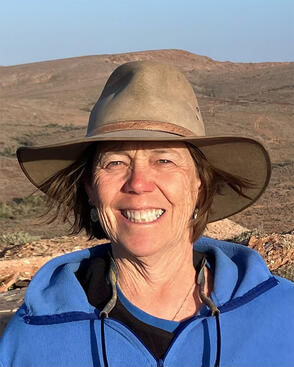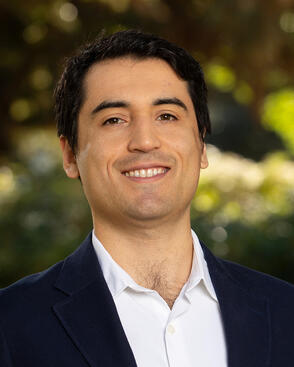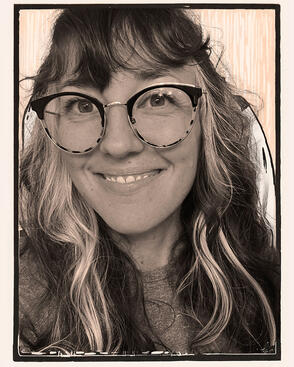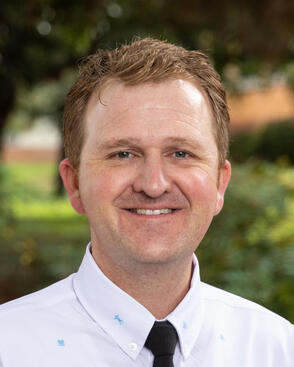The College of Natural & Agricultural Sciences is proud to present the annual Science Lecture Series. Since its inception, CNAS scientists have shared their knowledge and research with students, alumni, faculty, staff, and community members. Each Science Lecture Series topic tackles some of the most pressing issues we face as a local, national, and global community.
The Science Lecture Series is free and open to the public, but registration for each lecture is required. Light refreshments will be served, while supplies last.
Details about upcoming lectures will be posted here in the days ahead. Stay tuned for more information!
Science Lecture Series 2025
Animals, Sediments, Slime, Muck and Goo: The Record of Earth’s Early Animals and their Environments with Implications for Discovering Life Elsewhere
Mary L. Droser
Distinguished Professor of Geology
Department of Earth and Planetary Sciences
University of California, Riverside
Website: The Droser Lab
About Dr. Droser's Lecture
Planet Earth has an exceptional record of the unfolding of complex life on our planet. The oldest record of animals is full of diverse but sometimes strange looking soft-bodied forms that included organisms that grazed microbial mats, were attached to seafloor but reached up to over a meter in height and even floated in the water column. Earth’s earliest ecosystems were surprisingly complex. In her talk, Dr. Droser will talk about what we do and do not know about the rise of animals on Earth and why we should care!
About Dr. Droser
Dr. Droser has an undergraduate degree from the University of Rochester and a Ph.D. from the University of Southern California. Dr. Droser is a paleobiologist and paleoecologist who specializes in the advent of complex life on earth. Dr. Droser has worked on 4 continents studying the fossil record of early animals and has received funding from NASA, the National Science Foundation and National Geographic to do this research. Much of Dr. Droser’s field work is in South Australia which holds the best record for the advent of animals. There, Dr. Droser has worked to establish a new National Park based on the these fossils and is working with the South Australian government on a World Heritage Bid. Dr. Droser received the 2022 National Academy Walcott Medal, the 2022 SEPM Moore Medal and the 2024 Paleontological Society Medal.
Wednesday, February 5, 2025
Reception: 5-6 p.m.
Lecture: 6-7 p.m.
UCR Palm Desert Center
75080 Frank Sinatra Drive
Palm Desert, CA 92211
Register for the Dr. Mary Droser Lecture
Quantum Tomography of the Nucleus with the Electron-Ion Collide
Miguel Arratia
Assistant Professor
Department of Physics and Astronomy
University of California, Riverside
Website: Attatia Research Group
About Dr. Arratia's Lecture
I will discuss our efforts to map the structure of the atomic nucleus through "quantum tomography," seeking to understand how it arises from the most fundamental particles. Central to this work is the future Electron-Ion Collider, a flagship facility for nuclear physics currently under construction in Long Island, New York. This first-of-its-kind collider will allow us to study how quantum particles such as quarks and gluons arrange themselves in spacetime to form protons, neutrons, and atomic nuclei. These studies may help us unravel the origins of quantum spin, mass, and other properties of the proton. I will also discuss the development of new detector technologies for the EIC, ongoing tests, and construction projects related to these efforts.
About Dr. Arratia
Prof. Arratia specializes in experimental particle and nuclear physics. He is an assistant professor at the University of California, Riverside. Previously, he was a postdoctoral fellow at Berkeley and earned his PhD from the University of Cambridge. His research focuses on using high-energy electron beams to probe the atomic nucleus. His group designs, builds, and tests new detector technologies for future experiments, including those at the Electron-Ion Collider.
Tuesday, March 4, 2025
Reception: 5-6 p.m.
Lecture: 6-7 p.m.
UCR Palm Desert Center
75080 Frank Sinatra Drive
Palm Desert, CA 92211
Please check back to register
What is an organism, anyway?
Lucy E. Delaney
Assistant Professor of Teaching
Department of Evolution, Ecology, and Organismal Biology
University of California, Riverside
Website: ledelaney.org
About Dr. Delaney's Lecture
Biology cannot be understood by reducing life to its parts and memorizing them. And yet, all of us who have studied biology know we are often asked to do exactly that. We memorize the difference between prokaryotes and eukaryotes, we memorize the steps of mitosis, we memorize the base pairs of DNA. We forget it and memorize it again. We all say, The mitochondria is the powerhouse of the cell!... but what does any of it truly mean for us? In other words, why should we care?
Consider the following: are you an organism? Keep in mind that there are more prokaryotic bacterial cells living inside your body than your own eukaryotic ones. To these organisms, you are an ecosystem. In fact, the descendents of ancient bacterial organisms live inside your cells (hi, mitochondria) – right now providing you energy to evaluate if this lecture is worth your time. And what of insect colonies where only the queen can reproduce, microbial mats teeming with unicellular life that cooperatively share energy and resources, and let's not even start on viruses. The point is this: despite the constant emphasis on factual recall in the classroom, the business of living is messy and there are no definitive answers.
In this talk, Lucy will discuss the complexities of sense-making in the biology classroom, and demonstrate what the subject of biology can offer in the quest to discover ourselves and create meaning of our lives.
About Dr. Delaney
Dr. Lucy Delaney is an award-winning educator that was once, a long time ago, a very bad student. While she muddled through bachelor's and master's degrees from the City University of New York in Molecular Biology, she skipped class, crammed the night before, and never went to office hours. But something changed in the final semester of her master's program – Lucy finally experienced the transformative power of wholehearted teaching. Suddenly she was a very good student. In short, Lucy discovered why she cared. After completing a PhD in Evolutionary Biology from the University of Illinois at Chicago, she arrived at UCR in 2022 with the dream of figuring out this "wholehearted teaching" thing for herself and helping others discover why they care. Her research focuses on the retention and success of students in the introductory biology sequence using a mixed-methods approach. Currently, she is funded through the Hellman Fellowship Program to produce That's Life, an educational television program designed to engage learners in novel ways and revive excitement in STEM.
Saturday, April 12, 2025
UC Riverside Campus
900 University Avenue
Riverside, CA 92521
Please check back for time and to register
Parasitic Nematodes: Masters of Disguise
Adler R. Dillman
Professor of Parasitology & Nematologist
Department of Nematology
University of California, Riverside
Website: Dillman Lab
About Dr. Dillman's Lecture
Nematodes are successful and devastating parasites of humans, capable of modulating host biology in numerous ways including suppressing the immune system. We study parasites and host-parasite interactions to understand how they cause disease, avoid detection, and suppress immunity.
About Dr. Dillman
Dr. Dillman has a BS in Microbiology from Brigham Young University, a PhD in Genetics from Caltech, and performed postdoctoral research in immunology at Stanford. Dr. Dillman is a parasitologist that is interested in nematode parasites, their usefulness in agriculture, and their ability to infect and cause disease while modulating host immunity. He was awarded an Outstanding Investigator Award from the National Institutes of Health (NIH) and the Chancellor's Award for Excellence in Undergraduate Research and Creative Achievement from UCR. His lab is currently funded by the NIH, the National Science Foundation, and the United States Department of Agriculture. His lab recently reported the presence of a flatworm infection of dogs in the Colorado River in California. He has been studying parasitic nematodes since 2004 and currently serves as the treasurer for the Society of Nematologists.
Saturday, May 3, 2025
UC Riverside Campus
900 University Avenue
Riverside, CA 92521
Please check back for time and to register




